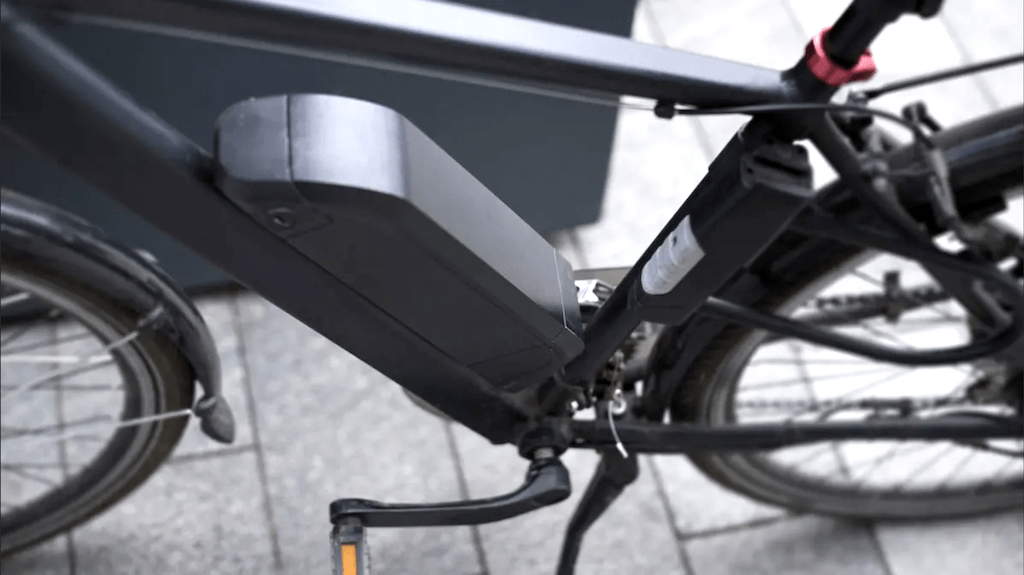
• Flip Book• eNews • eBikes • eAccessories • eCities • eSystems • eAdventures • eBikeTests • eFeatures •

• Flip Book• eNews • eBikes • eAccessories • eCities • eSystems • eAdventures • eBikeTests • eFeatures •
October 30, 2024 - In early August, the U.S. Senate Commerce Committee approved the Lithium- Ion Batteries Act, marking another step forward to enact the important safety bill into law. This follows the approval in May by the House of Representatives with overwhelming bipartisan support, similar to its unanimous passing (42- 0) by the U.S. House Energy and Commerce Committee in early Dec. 2023.
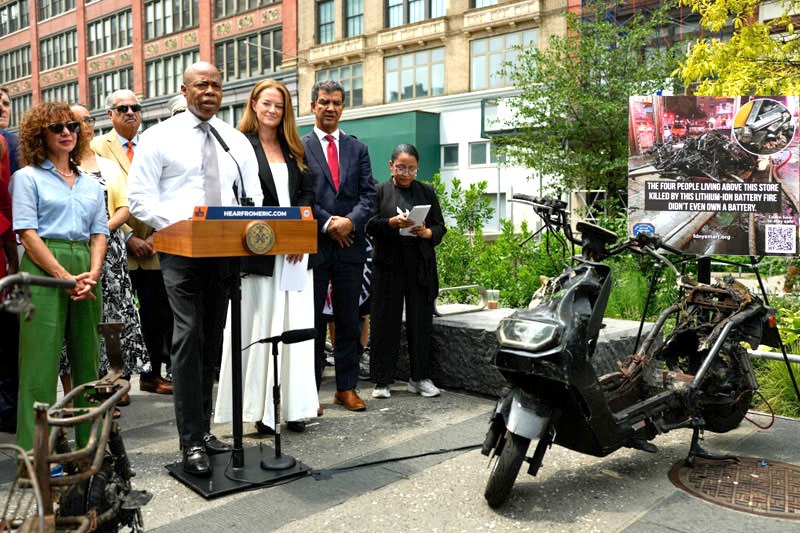
The Bill now moves to the Senate floor, which will be followed by a review by a conference committee made up of House and Senate members before final approval.
“We do not have any information on the timing of the Senate approval at this point,” commented Gabe Knight, policy advocate for Consumer Reports. “But there’s momentum given the public safety issues here. This Bill also specifically directs the CPSC (Consumer Product Safety Commission) to promulgate a safety standard ‘not later than 1 year after the date of the enactment of this Act’.”
The federal U.S. Consumer Product Safety Commission is aware of 19 deaths associated with micro-mobility device fires from January 1, 2021 through November 28, 2022. In New York City alone, since just the start of 2023, malfunctioning lithium-ion batteries have been linked to 243 fires and 18 deaths — up from six deaths in all of 2022.
When lithium-ion batteries and other high-energy- density batteries are poorly made, overused, tampered with, or charged too long, they can overheat and cause fast- spreading fires that are hard to extinguish.
In Toronto, last New Year’s Eve, a lithium-ion battery failure caused an e-bike to burst into flames on a subway car resulting in a “significant and aggressive” fire. A Vancouver woman is suing several e-bike and e-scooter companies, alleging that faulty lithium-ion batteries caused a fatal fire two years ago that resulted in her spouse’s death.
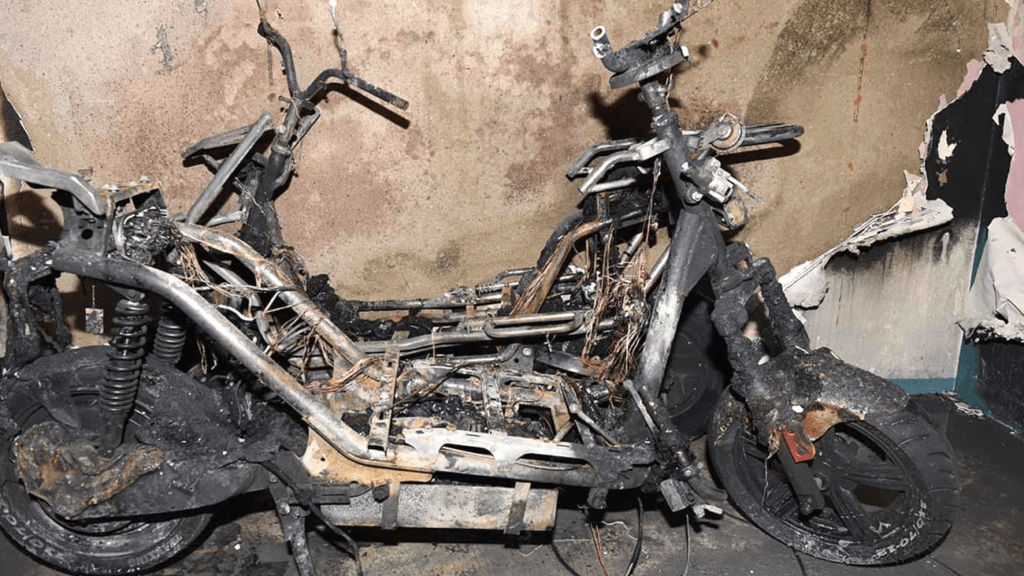
Underwriters Laboratories Inc. (UL) based in Northbrook, Illinois is a global safety certification company that conducts quality and safety tests to ensure safety, performance efficiency, quality, and environmental impact on a variety of wires and cables, such as extension cords, along with e-mobility products.
Battery safety standard, UL2271, is one step in the process. More and more e-bike companies are signing on to the UL2849 certification for the entire electrical system said Dejan Gakovic, Manager of Data Centers & Enterprise Systems at UL Solutions during a recent presentation at the (e)revolution show in Denver.
New York City, the site of some of the worst e-bike battery fires, is taking action. In March, NYC activated the first of five public e-bike battery charging locations as part of the city’s new six-month pilot program to test safe, public charging of lithium-ion batteries by an initial group of 100 delivery workers.
After five months the successful initiative in conjunction with the Fire Department of the City of New York (FDNY), Workers Justice Project/ Los Deliveristas Unidos, and several other partners boasted over 8,000 battery swaps and nearly 1,000 charging sessions completed.
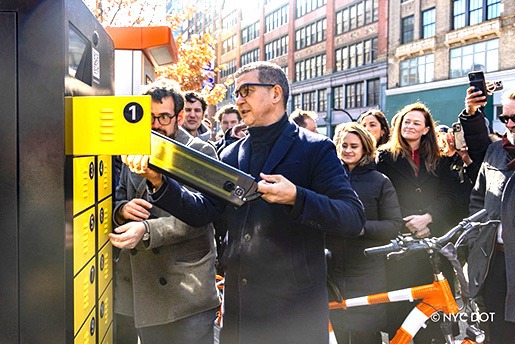
In July, Mayor Eric Adams launched the New York City Safe Charging Accelerator to expedite approvals for property owners to speed up the installation of e-bike battery swapping and charging cabinets on public sidewalks, removing barriers to their installation and making them accessible and usable for e-bike users.
The New York City Department of Transportation (DOT) also launched the nation’s first municipal trade-in pilot program for unsafe e-bikes and other powered mobility devices and their batteries, allowing eligible food delivery workers to replace their unsafe devices with certified, high-quality e-bikes and batteries. A $1 million public education and awareness campaign on the dangers of unsafe lithium- ion batteries by FDNY was also part of the Accelerator initiative.
Toronto’s Metrolinx updated its e-bike policy to ensure trains, buses and stations are safer, requiring all e-bike batteries to meet standard UL or CE requirements, and there must be no physical damage to the battery case or warranty seal.
In addition, Metrolinx is making room for more bikes due to increased demand for bicycle and e-bike transport and will build eight additional designated bike coaches that can each hold up to 22 bikes — more than double the current number of bike coaches.
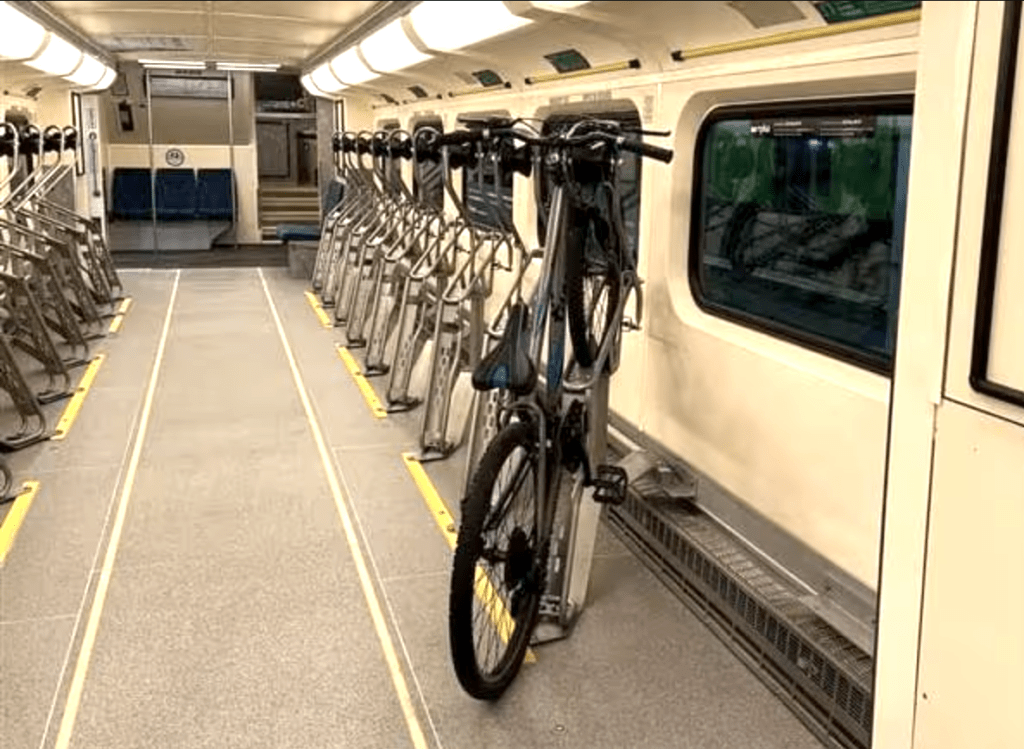
The Canadian Electric Bicycle Association (CEBA) offers online courses to educate bicycle dealers in the servicing of e-bikes. “We’ve trained over 200 dealers across Canada and the USA,” commented CEBA President, Michael Pasquali.
“We also teach safe handling, storage, charging, disposal and best practices regarding lithium batteries.”
Pasquali has been invited to Toronto Fire Department lithium-ion battery working groups, attended the Charged for LiFE (Lithium-ion Fire Education) Symposium as a panellist and works regularly with the NBDA (National Bicycle Dealers Association) on their E-Bike Safety & Standards Panel.
“As the e-bike and e-scooter market continues to evolve, the NBDA is committed to ensuring that safety remains a top priority for retailers and consumers alike. The recent Lithium- Ion Battery Safety Bill is a crucial step toward creating a more stable and regulated environment in both the U.S. and Canada. This is about protecting our communities, our customers, and the future of the e-bike industry,” commented Heather Mason, President of the NBDA.
CEBA recently partnered with Call2Recycle, one of the largest and most reliable battery recycling programs, to exclusively sell the LIBIK (Lithium-Ion Battery Incident Kit) to Canadian e-bike retailers. The kit assists in addressing potential battery incidents and/or allowing more time to get to safety and call emergency services.
Call2Recycle, founded in 1994, runs separate operations in Canada and the USA. It became involved with e-bikes back in 2021, in partnership with People for Bikes, and the first- ever industrywide, voluntary e-bike battery recycling program was launched. This partnership led to the creation of a safe, effective, and sustainable ecosystem and supply chain for e-bike batteries.
The popularity of e-bikes is showing no signs of slowing down as the micromobility sector continues to expand worldwide. The implementation of national standards, safeguards and regulations is a major component of building a safe and stable environment where all stakeholders can benefit.